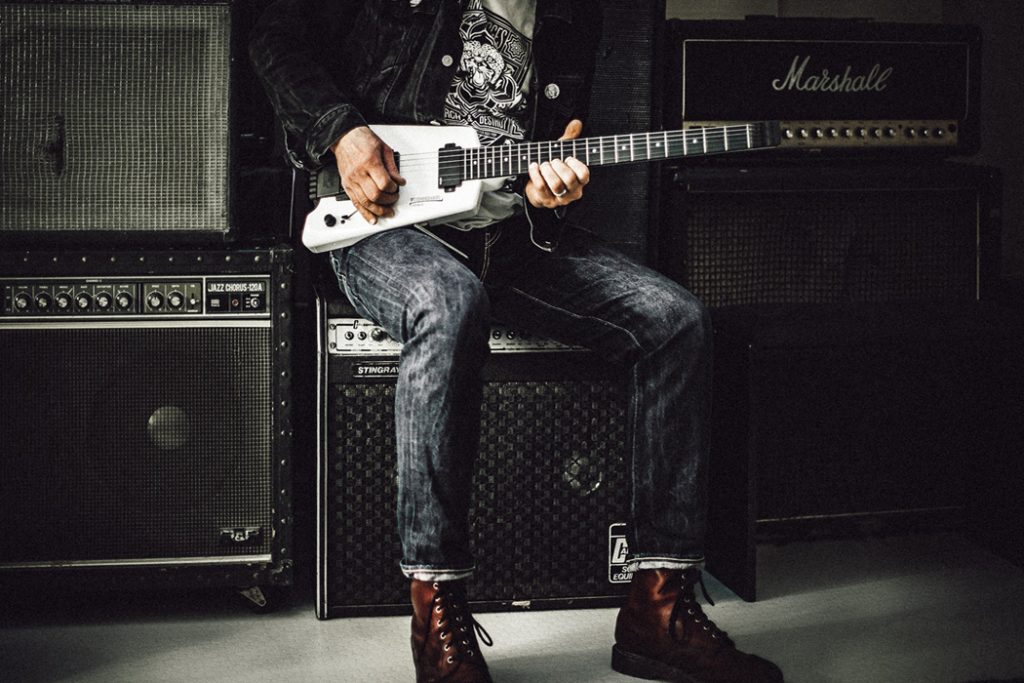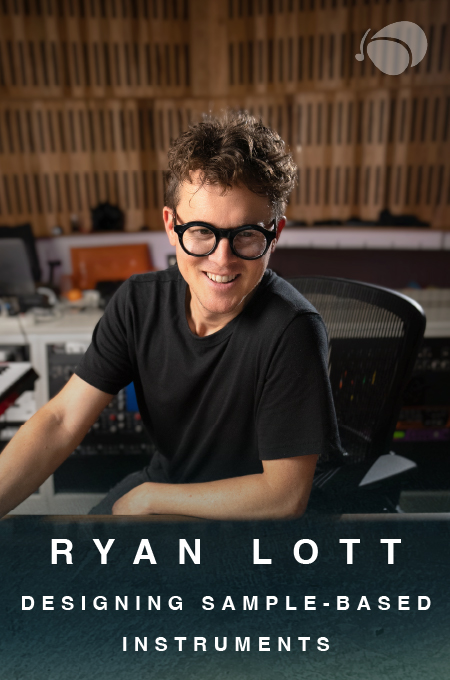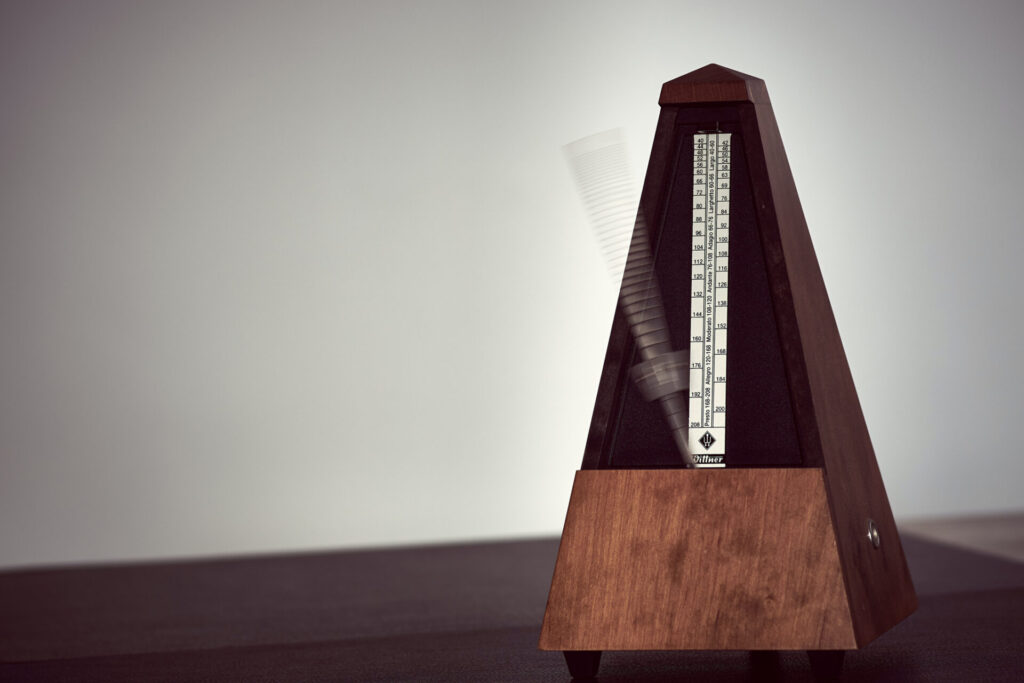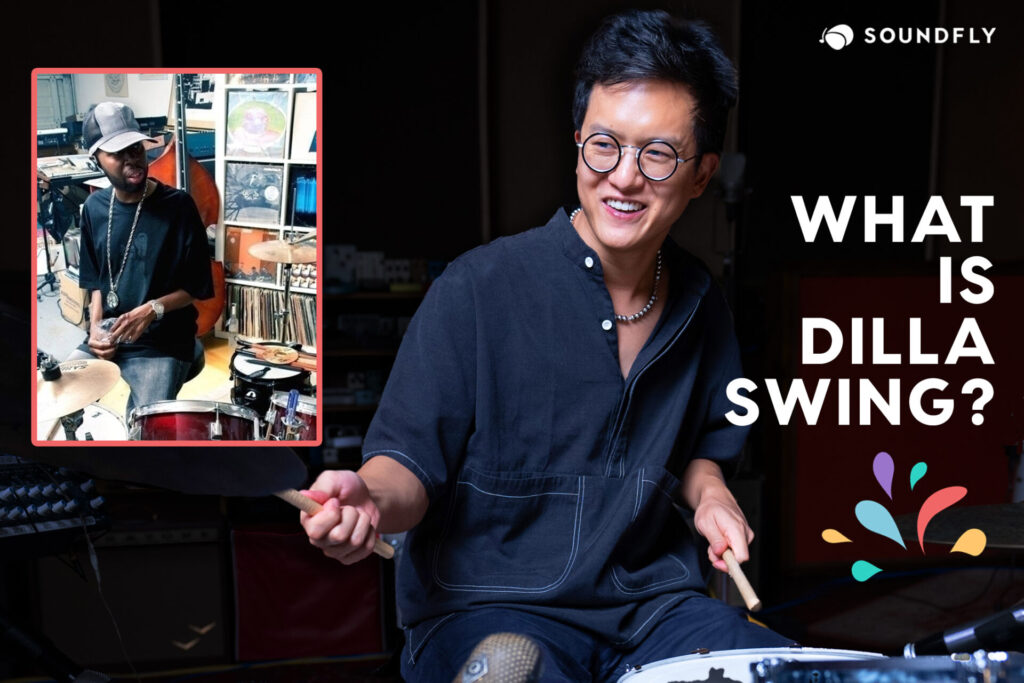+ Our brand new course with The Dillinger Escape Plan’s Ben Weinman teaches how to make a living in music without making sacrifices. Check out The Business of Uncompromising Art, out now exclusively on Soundfly.
Amplifiers do a huge amount to both bring out and shape your guitar’s signature sound. They are often just as important, if not sometimes more important than the build of the guitar itself. This guide is meant to help you out if you’re new to buying equipment to hone your guitar sound. And if that’s the case, you’re going to need to pick an amp that fits appropriately within the sonic particularities of your genre.
Are you going for a searing metal tone? Do you want a nice soft crunch for some blues rock? Or, are you looking for a warm, clean jazz guitar sound?
These questions are important. Hopefully this quick guide can help you pick out the right amp for your needs. And since you probably don’t live in an area with unlimited choice, we know it can sometimes be hard to find niche, small production amps and it’s usually quite expensive to buy vintage pieces.
So we wanted to focus on amps that are largely available in music stores anywhere. This list features common guitar amplifiers and their “types,” if you find similar amps, replicas, or alternate versions or editions, those would all work great!
Blues
Blues guitar is often defined by its light, natural-sounding distorted crunch and a pleasant, round tone. You’ll also need to use the natural expressiveness of the guitar to be able to play both softly and loudly during a blues song, and so I always recommend blues musicians going for a tube amp. Set your gain right where you can play lightly for a nice, clean tone, but where you’ll also get some tasty, soulful distortion when you dig into a note. If you’re getting a tube amp, I’d recommend getting something with a lower wattage so you can crank the gain right on the amp and use its natural distortion settings (no need for fancy pedals in the blues).
I also recommend looking for an amplifier with an open back if possible, since you’re going to need strength in the mid-range tones and not obfuscate the natural lows. Here are some of my favorite choices for the blues:
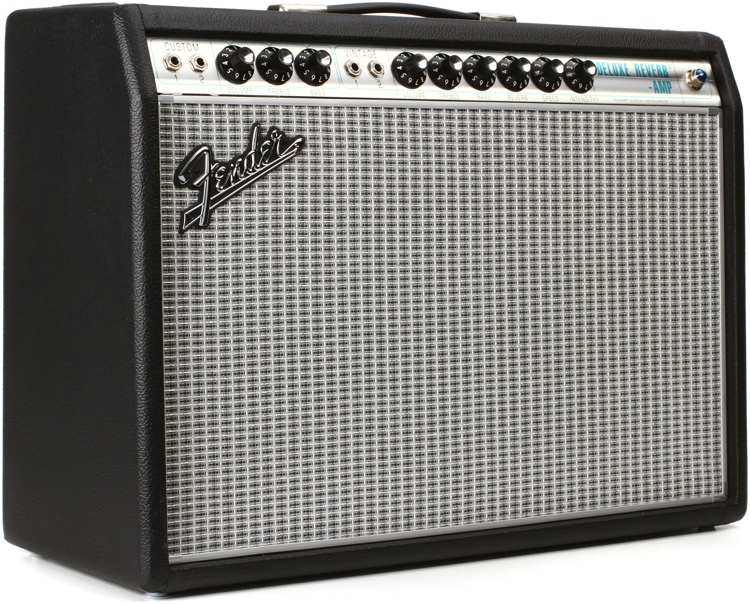
- Pictured above: Fender Deluxe Reverb
- Fender Custom Twin (especially their “Tweed” Twins)
- Roland Blues Cube
Metal
If you’re looking to praise the Dark Lords with your flashy licks and hell-raising riffs, you’re going to need the right stuff for the job! The most important variable when buying an amp for metal is how it delivers distortion. You should make sure to get an amp that can really push the limits of distorting your guitar without completely degrading the tone to bits. Because of how much you need to drive your guitar, a lot of amps simply aren’t able to deliver super high-quality sound.
For metal music, I recommend getting a solid state amp because, while tubes can certainly achieve a heavy sound, at high levels of distortion for long periods of time, solid state amps are much more reliable. You don’t have to rely on the amp’s own effects so much, since in metal you’re likely to have more than a few pedals in your chain, but its electronics need to handle the load. Here are some of my favorite choices for playing metal music:
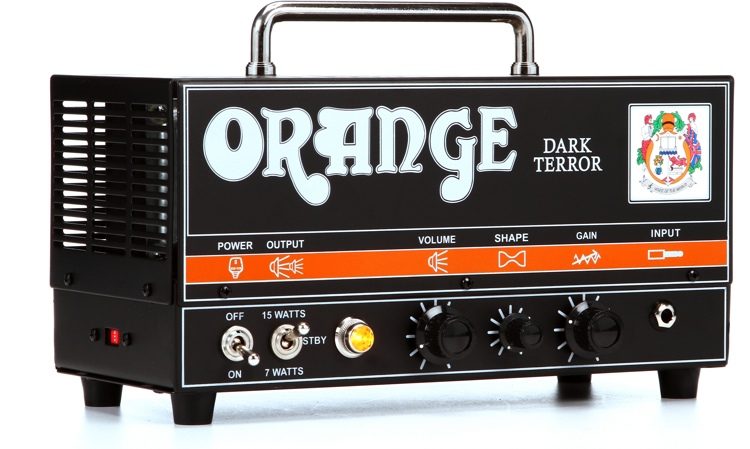
- Pictured above: Orange Dark Terror
- Peavey Valveking II
- Randal RG1003H
Classic Rock
Rock ‘n’ roll is a wide genre of music that incorporates a ton of different sound imprints. My advice may seem a bit broad, but ultimately you’re always free to try things and see what works for you! Let’s just say, in terms of the sound you’re going for, you’re playing in a band that does classic covers and original songs in the same set. If you’re playing some classic guitar lines, perhaps switching between rhythm and lead guitar, you need an amp that can handle those differences with an all-around good tone.
Similarly, if you tour or play live a lot, you can consider investing in a nice amp head, so you don’t have to lug a giant amp with you everywhere. If you want to buy a great amp to play classic rock, look for something lightly used and durable. Here are some of my favorite choices for making classic rock music:
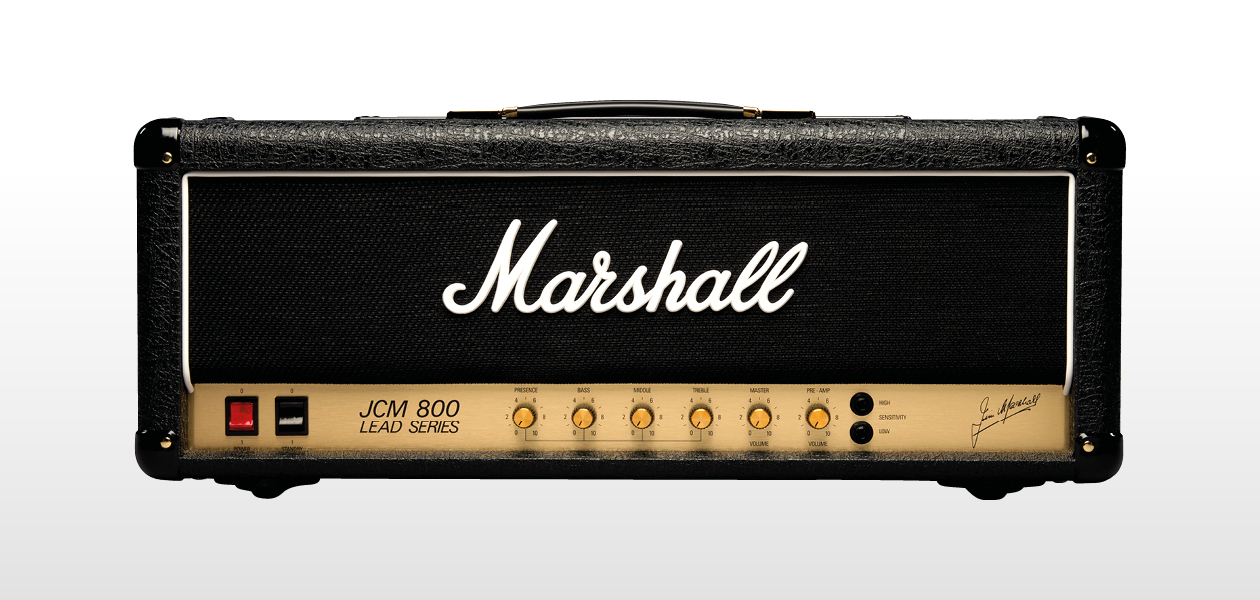
- Pictured above: Marshall JCM800 Lead
- Fender ’65 Deluxe Reverb Combo
Jazz
Jazz amps need to produce an absolutely crystal clear sound. While of course many jazz guitar players use a lot of gain, the most important attribute is that clear tone. The clarity of a solid state or combo amp might give you an edge. That said, tube amps tend to produce more internal noise, so you might have a difficult time achieving the specific guitar tone you want. On the other hand, solid state amps are usually a bit more “transparent” when it comes to signal.
If you’re a jazz musician you’re also probably transporting your equipment to a ton of gigs, so getting something portable is a good idea. Here are some of my favorite choices for playing jazz:
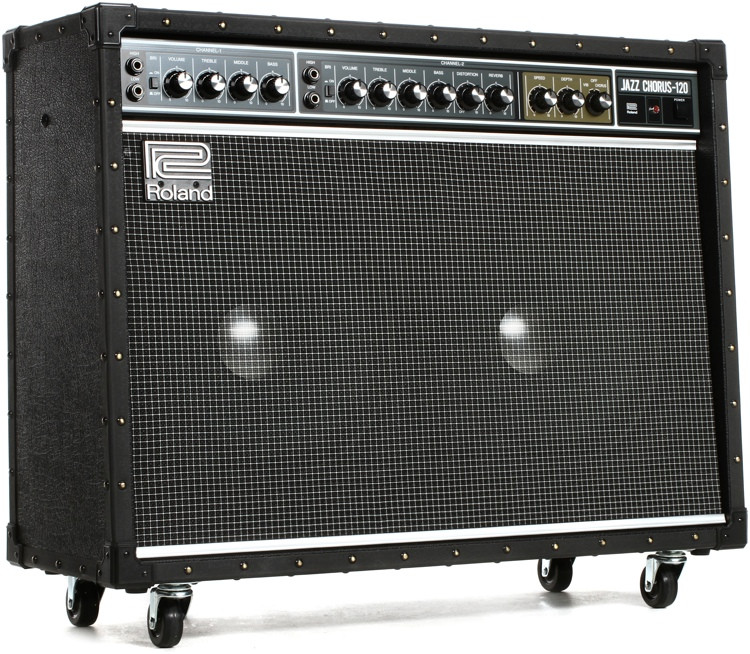
- Pictured above: The Roland Jazz Chorus
- Fender Blues Jr.
- Fender Deluxe Reverb
Punk
Get something loud that can take a beating. Beyond that, punk amps should be able to handle a sound somewhere between classic rock and metal. The amp will live and die by how it produces overdrive, but you’ll need a more rounded sound that doesn’t have as much high end as well. If you buy something with multiple smaller speakers, you’ll be able to keep your high end definition without cranking the EQ to compensate.
Natural overdrive can sound amazing in a punk song, so if you’re getting a tube amp don’t forget to crank the drive to see how you like the sound it produces. Otherwise, stick to pedals, and look for something big and tough enough to handle your tone (and the mosh pits). Here are some of my favorite choices for punk musicians:

- Pictured above: Orange Crush Pro Series
- Marshall HGFX
- Blackstar HT Club
- Any amp you find in some back alley somewhere and repair yourself back to life.
Country
If you’re going to be playing country music with an electric guitar you’ll probably want to have just a touch of bite, or crunch on your guitar, with strong mids and not a lot of highs. An open-back amp can help diffuse some of the higher frequencies to give you a more muted tone. Country music also lends itself to lots of gigging, so I’d recommend an amp with a low wattage as well. Country music is obviously going to be played much quieter than punk or metal.
But one of the most important aspects is that it’s either built with or able to handle a good amount of tremolo and reverb. Those two effects, along with the warmth that decent tubes will give you, should set you up with the perfect country sound. Here are some of my favorite choices for playing country music:
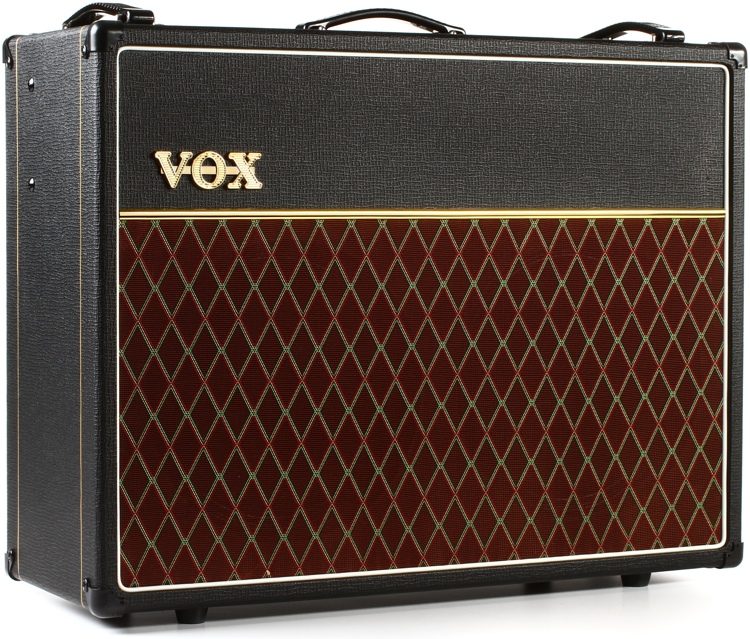
- Pictured above: Vox AC30
- Marshall JTM 45
- Supro Blues King
Let me know what your favorite amps are in the comments below! Thanks for reading.
Rev Up Your Creative Engines…
Continue your learning with hundreds of lessons on songwriting, mixing, recording and production, composing, beat making, and more on Soundfly, with artist-led courses by Kimbra, RJD2, Com Truise, Kiefer, Ryan Lott, and Ben Weinman’s The Business of Uncompromising Art.
